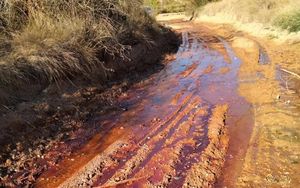US President Donald Trump has escalated tensions between Washington and Pretoria by freezing aid to South Africa, citing the country's controversial land expropriation law as the main reason. This law aims to tackle historical inequalities from apartheid, but Trump argues it lacks concern for individual rights and enables the government to confiscate land from ethnic minority Afrikaners without compensation.
On Friday, Trump signed the executive order and proclaimed it was necessary due to what he termed South Africa’s "shocking disregard" for cultural and property rights. The Expropriation Act, recently signed by South African President Cyril Ramaphosa, allows the government to seize land without compensation if deemed just and equitable. Trump stated, "The United States cannot support the government of South Africa's commission of rights violations... which poses national security threats to our nation, our allies, and our interests."
This order aims to promote the resettlement of Afrikaners who have faced what Trump termed "government-sponsored race-based discrimination." The humanitarian aspect of the order includes plans to assist Afrikaner farmers as refugees—a pointed focus amid the charged atmosphere surrounding land ownership and racial equality issues. According to U.S. government data, Washington allocated roughly $440 million to South Africa this year, reflecting significant aid now under threat.
Trump's criticism of the South African government doesn't stop at land issues. The president also condemned Pretoria's conduct at the International Court of Justice, where South Africa has accused Israel of genocide over its military actions. Trump's administration has presented this as additional evidence of South Africa’s aggressive posturing against U.S. allies and interests.
Ramaphosa and his government have strongly countered Trump’s claims. They argue the Expropriation Act is part of broader efforts to address the stark disparities in land ownership stemming from apartheid. Current government audits reveal Black South Africans, who make up over 80% of the population, own only about 4% of the farmland, compared to around 75% held by whites, who comprise just 7% of the demographic. Ramaphosa stated, "We will stand united and will not be bullied. We are resilient, and our strategies are just and equitable."
The Democratic Alliance (DA), South Africa’s primary opposition party, has also expressed concerns over the Expropriation Act. They argue the Act poses a severe threat to property rights and may lead to foreign investors reconsidering their stakes. Despite Trump’s assertions, the DA maintains there shouldn’t be consequences for ordinary South Africans due to the government’s policy mistakes.
Trump's accusations have drawn sharp responses from rights groups and other organizations within South Africa. AfriForum, civil rights organization primarily representing Afrikaners, considers Trump's actions justified, indicating the historical mistreatment of their community. CEO Kallie Kriel shared, "AfriForum has highlighted the ANC’s failings on property rights, and the U.S. is not wrong to take notice. We believe our people are facing discrimination, but we will not flee; we will remain here and fight for our rightful place."
What makes this diplomatic spat even more complicated is the approach from Trump and the way he has linked humanitarian concerns with significant political ramifications involving U.S. foreign policy. The President's pledge to resettle Afrikaners has provoked questions about logistics and the viability of relocating individuals from South Africa against the backdrop of Trump's administration's broader immigration policy, which has aimed at restricting refugee admissions.
Going forward, this executive order and its stipulations could severely impact U.S.-South Africa relations and the mechanisms of international aid. The call for resettlement raises more questions about the future treatment of minority groups within South Africa, especially with Ramaphosa's insistence on fulfilling equity objectives.
Overall, the assistant ramifications of Trump's actions highlight the deep-seated tensions over land ownership and race, issues continually fanned by historical grievances from the apartheid era. Such conflicts make the longstanding debate over property rights and equitable access to land contestable, difficult, and unresolved.
Understanding these complex social dynamics will be key to viewing the developments between South Africa and the United States moving forward, as diplomatic relations and human rights agendas go hand-in-hand.



